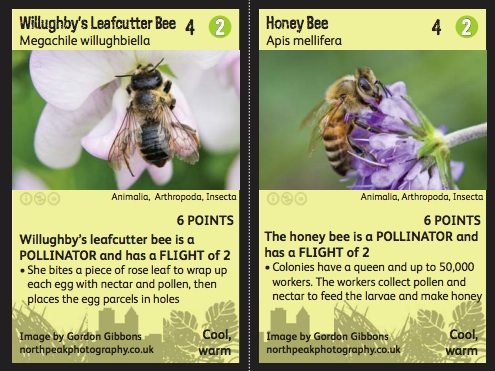
And part of their resource package includes a card game that is built upon the Phylo game mechanic.
The Phylo Cards and the games that can be played with them are designed to help children find out about British plants, animals and fungi and how their lives are linked to each other. They can also help to investigate how we are ourselves dependent on other species, especially pollinators. They show the effects we are having on wildlife, good and bad.
There are different levels of difficulty in the games and activities, so they are suitable from infant age upwards into secondary and can stimulate debate on many biodiversity issues.
Instructions for 2 games (‘Phylo Rummy’ and ‘Phylo Ecosystem’) are included in the cards, and rules for these and a third simpler game ‘Phylo dominoes’ are included in the Phylo Educator’s Notes. A fourth basic game – ‘Phylo snap’ – can be downloaded in the Phylo extras page to the left. The educator’s notes also contain information about how to use the cards and how they model real ecosystems, how to introduce the cards to a class, worksheets and a quiz. There is a Class Set of A4 Phylo cards to introduce the game interactively (details in the educator’s notes).
The Bee Cause Phylo is a version of the open source game ‘Phylo’. Many more cards, which can be used in addition to the ones in this pack to investigate other biodiversity issues can be found atwww.phylogame.org. The word ‘phylo’ is a prefix relating to the classification of organisms.
More details can be found here.